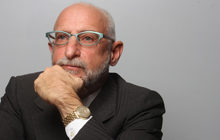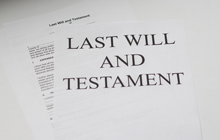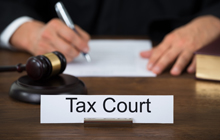Analysis: Tax litigants may amend their arguments during a trial

Canadian tax lawyer and accountant David J Rotfleisch analyzes Canada v. Pomeroy Acquireco
Introduction: Amending Replies During Tax Litigation
 |
David J Rotfleisch, CPA, JD is the founding tax lawyer of Taxpage.com and Rotfleisch & Samulovitch P.C., a Toronto-based boutique tax law corporate law firm. |
In the course of an appeal to the Tax Court of Canada by a Canadian taxpayer against the Canada Revenue Agency, the Canadian tax litigation lawyers for both the taxpayer and the CRA may amend their pleadings under the Tax Court of Canada Rules (General Procedure). A pleading is a formal written statement of a party's claim or defenses to another party's claim in the course of litigation. Under section 54 of the Tax Court of Canada Rules (General Procedure), the amending party must either secure the consent of all parties or the discretion of the Court in order to amend a pleading.
During an appeal to the Tax Court, both the taxpayer and the CRA may want to amend their pleading for a number of reasons. The CRA may be faced with limited facts at the onset of the appeal. As more facts are made available to the CRA during the discovery process, it may wish to amend its pleading to account for these new facts. Furthermore, either the taxpayer or the CRA may wish to introduce new legal arguments during the middle of an appeal to the Tax Court.
In Canada v. Pomeroy Acquireco Ltd., the CRA asked the Tax Court permission to amend its reply. The request was initially rejected by the Tax Court judge, the lawyer for CRA appealed to the Federal Court of Appeals and won.
Pomeroy – The Facts
The CRA filed a motion in an ongoing Tax Court litigation to amend its reply to include two new arguments: an argument related to valuation and an argument related to sham transactions. The taxpayer opposed CRA's motion to amend, and the Tax Court judge agreed with the taxpayer on the following grounds:
- The CRA's proposed amendment to its reply is not vital to the case at hand.
- The CRA's existing pleadings already contained the facts to support both the sham transaction argument and the valuation argument.
- The sham transaction argument relied on proving the subjective intention of Mr. Robert Pomeroy, who had passed away on June 11, 2020. Therefore, allowing the CRA to advance its proposed amendments would be unfair to the taxpayer corporation.
The CRA appealed the decision to the Federal Court of Appeals. The Federal Court of Appeals ruled in favor of the CRA. The Federal Court of Appeals ruled that the correct legal test for whether an amendment to a pleading should be allowed is not whether the amendment would be vital to the case at hand, but whether the amendment would assist in determining the real questions in controversy between the parties, provided the amendment would not result in an injustice not compensable in costs and that the amendment would serve the interests of justice.
Based on the correct legal test, the Federal Court of Appeals decided the proposed CRA amendment to its reply would not result in injustice not compensable in costs despite the fact Mr. Pomeroy had passed away. The Tax Court judge had already concluded that the CRA's current pleadings already called into question the true nature of the transaction as well as calling into question issues regarding valuation. Since the issues addressed by the proposed amendment were already contained in CRA's existing pleadings, the amendment could not be prejudicial to the taxpayer.
Beware of Rules Surrounding Pleadings
The Federal Court affirmed the basic rules governing amendment of pleadings. Both parties may amend their pleadings if amendment would assist in determining the real questions in controversy between the parties, provided the amendment would not result in an injustice not compensable in costs and that the amendment would serve the interest of justice.
It is important to keep in mind that while the introduction of new arguments or new theories based on the same set of evidence would require an amendment to a party's pleadings, the reverse is not true. A party may rely on new evidence disclosed during the litigation process to booster his or her existing argument without needing to amend the pleadings.
David J Rotfleisch, CPA, JD is the founding tax lawyer of Taxpage.com and Rotfleisch & Samulovitch P.C., a Toronto-based boutique tax law corporate law firm and is a Certified Specialist in Taxation Law who has completed the CICA in-depth tax planning course. He appears regularly in print, radio and TV and blogs extensively.
With over 30 years of experience as both a lawyer and chartered professional accountant, he has helped start-up businesses, cryptocurrency traders, resident and non-resident business owners and corporations with their tax planning, with will and estate planning, voluntary disclosures and tax dispute resolution including tax audit representation and tax litigation.
Visit www.Taxpage.com and email David at david@taxpage.com. Read the original version of this article on Taxpage.com.











(0) Comments